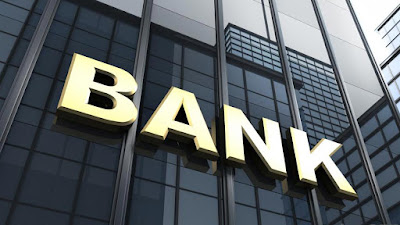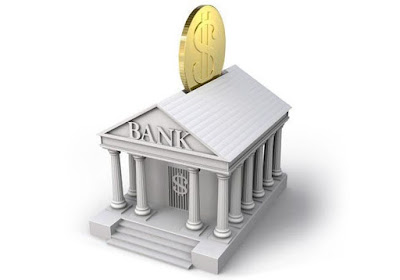Today we will explain how banks create money out of thin air. Yes, you might not believe it, banks create money out of thin air.
To explain how this is possible let's talk about what a bank does. A bank accepts deposits from the customers but doesn't just hold that money. If all banks did was holding other people's money, there would be no profit in that. Instead what a bank does it takes that money and it loans most of it out. You might wonder, why can't it loan all of it out? And the answer is because sometimes customers come back and they want to withdraw some of that money.
So, if you and I and everybody else goes to the bank the same time to get our money out, the bank does not have that money. They wouldn't be able to pay us, and the bank would default. That's called a bank run and it's bad.
In the United States there is a Deposit Insurance to make sure bank runs don't happen, but the point is the bank doesn't hold all those deposits. They loan it out. The amount of deposits that the bank needs to hold by law is called a required reserve. In the United States it's 10%. This means that the other 90% is something called excess reserves and they're free to loan that out.
Let's say someone goes into a bank and deposit a hundred dollars from their pocket into the bank. This won't change the money supply because money from your pocket is part of money supply, so is demand deposits inside banks. So far there's been no change in the money supply but here's where the magic happens - the bank is going to hold a certain percentage by law let's say 10% so they're going to hold $10. That means they are going to loan the other 90 out.
The person who deposited $100 has $100 in the account but the person who borrowed the 90 also has now $90. That $90 is money that was created from thin air and did not exist until the loan occurred.
If that person's going to spend that $90 and eventually that $90 can make its way back into another bank that other bank is going to take that $90. It's going to hold 10% and require reserves so 9 dollars it holds, and it's going to loan the other $81. Out of that 81 new dollars is new money supply - it was not created until the loan occurred.
Eventually the person who borrow the money is going to take it and spend it and that's going to make its way to a new bank and the same thing is going to happen again and again, and again, and again.
Now it turns out that the Initial deposit of $100 is actually going to become $900 of new money created.
The way you could calculate it is by looking at something called the money multiplier, which is one over the reserve ratio. In this case when the reserve ratio is 10% that meant the money multipliers 1 over 0.1 so it's 10. If you are asking yourself ‘if the initial amount deposited was $100 and the multiplier is 10 why didn't a thousand dollars of new money get created?’ And the reason why is - because the initial hundred dollars was actually part of the money supply to start off with, so the only amount of new money that was created was from the initial loan of $90. The calculation is $90 times 10 equals $900 of new money created.
And that explains the whole idea of fractional reserve banking! Banks hold a portion of deposits and they loan the rest out and whenever they loan it out, they create new money.











